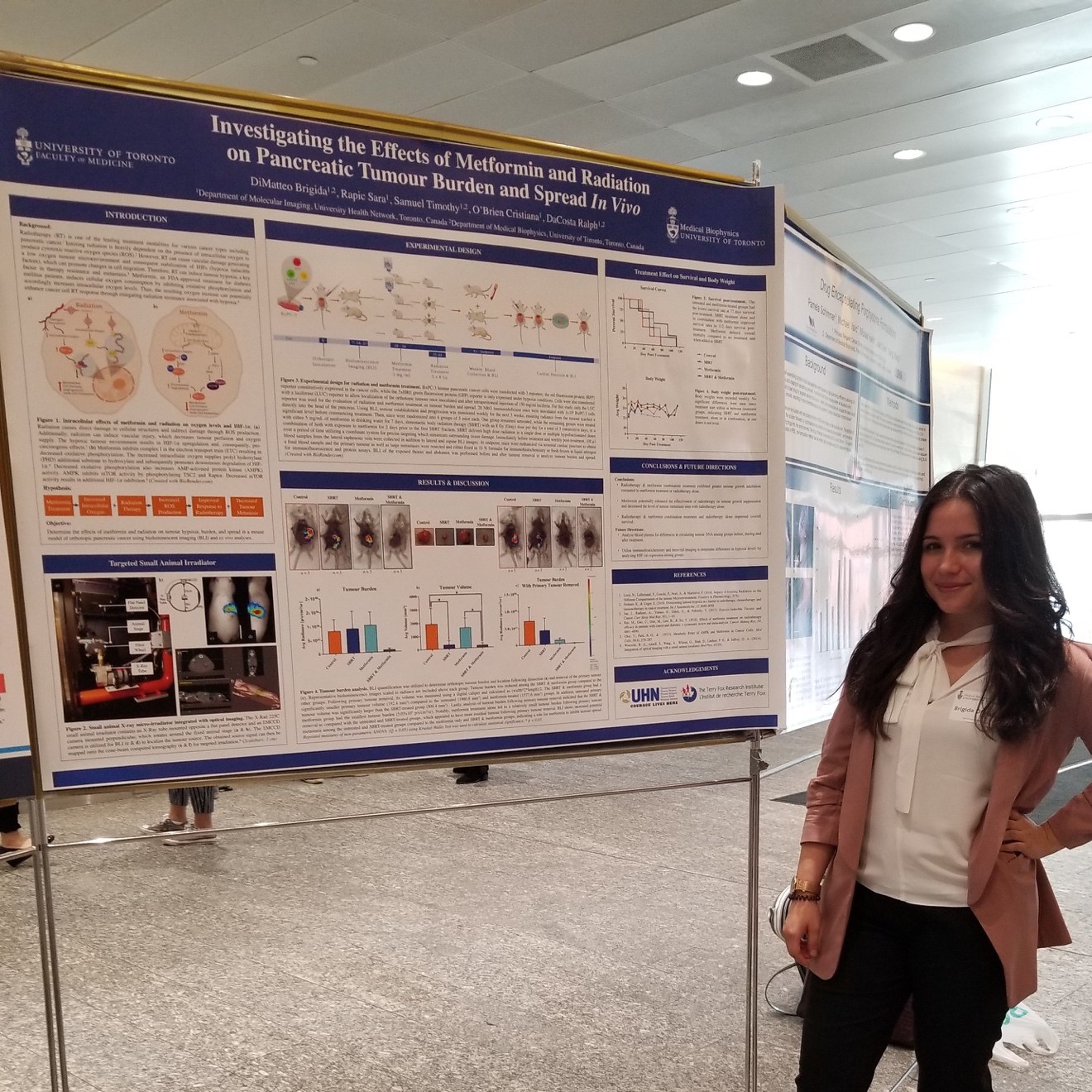
Brigida DiMatteo, a Medical Biophysics summer student placed at the DaCosta lab this summer, presented her research focusing on the effects of metformin and radiation treatment on pancreatic tumour burden and spread in vivo.
Abstract:
Pancreatic cancer, the second most common gastrointestinal cancer, has a poor prognosis with an overall 5.1% 5-year relative survival rate. An integral treatment which is frequently used in the neoadjuvant and adjuvant care is radiation therapy (RT). RT is heavily dependent on intracellular oxygen to produce cytotoxic reactive oxygen species. However, RT damages vasculature thereby inducing tumor hypoxia, a key factor in therapy resistance and metastasis. Metformin, an FDA-approved treatment for diabetes mellitus patients, reduces cellular oxygen consumption by inhibiting oxidative phosphorylation and accordingly increases intracellular oxygen levels. Thus, the resulting oxygen increase can potentially enhance cancer cell RT response through mitigating radiation resistance associated with hypoxia as seen in the preliminary data.
Abstract:
Pancreatic cancer, the second most common gastrointestinal cancer, has a poor prognosis with an overall 5.1% 5-year relative survival rate. An integral treatment which is frequently used in the neoadjuvant and adjuvant care is radiation therapy (RT). RT is heavily dependent on intracellular oxygen to produce cytotoxic reactive oxygen species. However, RT damages vasculature thereby inducing tumor hypoxia, a key factor in therapy resistance and metastasis. Metformin, an FDA-approved treatment for diabetes mellitus patients, reduces cellular oxygen consumption by inhibiting oxidative phosphorylation and accordingly increases intracellular oxygen levels. Thus, the resulting oxygen increase can potentially enhance cancer cell RT response through mitigating radiation resistance associated with hypoxia as seen in the preliminary data.
